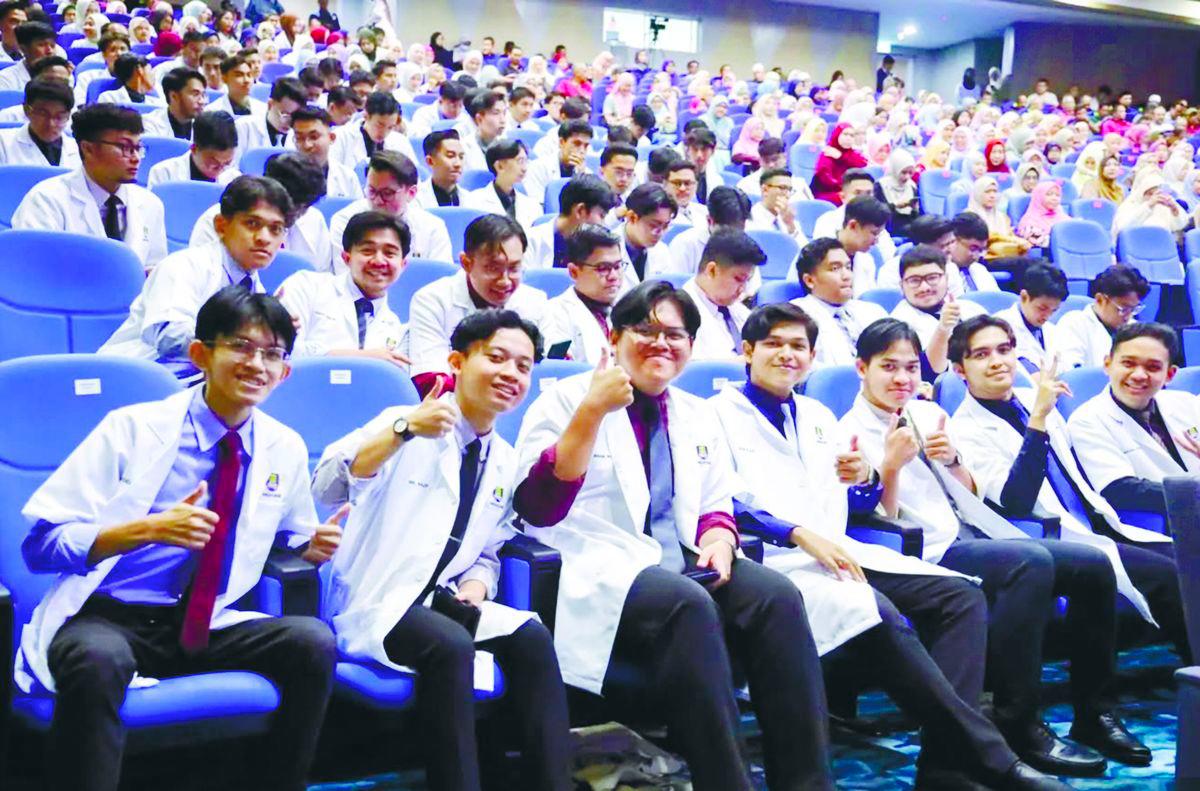PETALING JAYA: A highly viewed TikTok video posted by a Malaysian who claimed to be a surgeon has reignited debate over the harsh realities faced by young doctors in the country.
In the clip, the surgeon advises top Sijil Pelajaran Malaysia scorers not to pursue medicine for money or job security, a message that has struck a chord with junior doctors and medical students who are grappling with long hours, low pay and limited career prospects.
The video, which has been widely shared on social media, has sparked renewed calls for long-overdue reform in Malaysia’s healthcare system.
Universiti Putra Malaysia’s Prof Dr Muhamad Saiful Bahri Yusoff said while the message may seem discouraging, it reflects sentiments that are increasingly common among early-career healthcare professionals.
“The video reflects a growing appetite, especially among young professionals and the public, for more open and honest conversations about the medical profession.
“Though its tone may seem blunt, it’s grounded in real, lived experiences that deserve recognition,” he said.
Muhamad Saiful acknowledged that medical training in Malaysia is both rigorous and demanding.
House officers often work more than 60 hours a week and are frequently posted far from their families and support systems.
He noted that these challenges are not unique to Malaysia but are now receiving more attention and, in some cases, are under review.
He added that the contract system, originally introduced to address the oversupply of medical graduates, has instead contributed to job insecurity and uncertainty around career progression.
“Career progression remains possible, but it can feel uncertain or delayed depending on the speciality and availability of posts.”
Despite these challenges, Muhamad Saiful said medicine remains a noble and rewarding career, though younger generations are redefining what makes a profession worthwhile.
“Today’s graduates increasingly prioritise work-life balance, autonomy and mental well-being, alongside income and job security,” he said.
“It’s not that medicine is less rewarding, but that the definition of ‘rewarding’ has become broader.”
To better prepare future doctors, UPM has introduced initiatives that go beyond academic training, focusing on student well-being, leadership and real-world readiness.
One such programme is the Shadow House Officer Training System, a simulation designed to expose final-year students to the realities of hospital work.
Still, Muhamad Saiful warned that Malaysia’s ongoing doctor shortage, particularly in rural areas and critical specialities, stems not from a lack of graduates but from maldistribution and retention issues.
“This is a classic case of a maldistribution paradox. We’re producing more doctors but many are concentrated in urban hospitals while rural areas remain underserved.”
The issue is compounded by a decline in graduate numbers.
In April last year, Health Minister Datuk Seri Dr Dzulkefly Ahmad said the number of house officers in public hospitals had halved since 2019.
“There was a time when we had up to 7,000 medical graduates annually. Now, it’s just over 3,000,” he said.
“As a result, housemen are facing heavier workloads due to the shortage of manpower.”
Health systems specialist Dr Khor Swee Kheng said the issue reflects a broader talent shift across essential professions.
“Medicine – even law, accounting, engineering and science – may be losing appeal among youths, who are increasingly drawn to finance, tech or social media careers,” he said.
“This is a decades-long talent allocation challenge that needs an all-of-Malaysia response,” he added, calling for stronger collaboration between the Education, Human Resources and Health ministries, as well as economic planners and the private sector.
Despite the challenges, Muhamad Saiful said the public reaction to the video signals hope.
“This isn’t a sign of decline. It shows that people still care deeply about the profession and want to see it thrive.”









